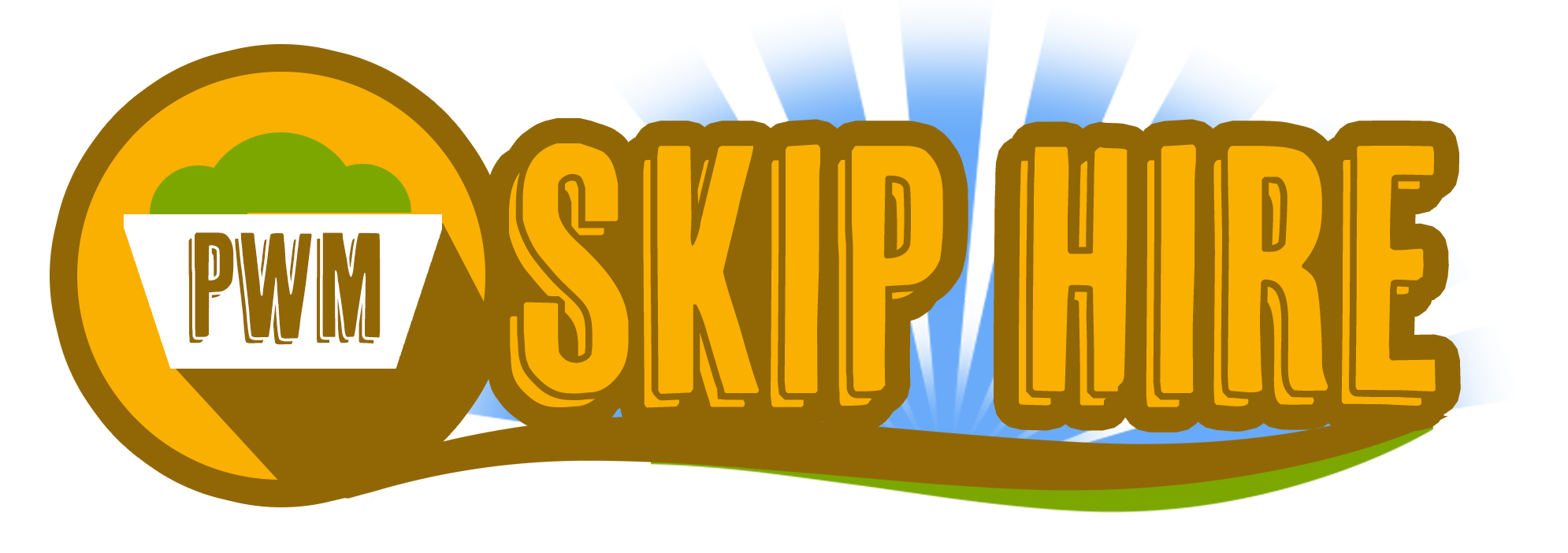PWM SKIP HIRE FAQ
Your Frequently Asked Questions - AnsweredSkip Size – What skip size should I choose?
We have three skip sizes: 2 yards (Mini), 4 yards (Midi), 8 yards (Maxi).
We also have Skip Bags for small rubbish removal.
The most popular size is the Midi skip. Larger skips cost more than smaller skips,
but assuming you have enough waste to fill them, work out better value.
The best skip size for you depends on the quantity of waste you are disposing of and the
amount of space available at your property for putting the skip
Level Loads – how high can I load a skip?
Only fill your skip up to the height of its sides because otherwise the skip driver may refuse to collect it.
This is because transport laws make it illegal to move a skip which is not ‘level-loaded’.
Prohibited items – What items can’t I put in my skip?
Skips are designed for getting rid of non-hazardous waste, not specialist materials.
The main items prohibited include:
Asbestos – Batteries – Clinical waste – Electrical equipment (WEEE)
Fluorescent tubes – Fridges / freezers – Gas bottles & cylinders – Liquids
Mattresses (additional charges apply) – Paint/paint tins – Plasterboard
Oil / petrol / diesel – Solvents – Toxic waste – TVs / computer screen – Tyres
Labour – will you help with loading the skip?
We provide skips, not the labour to load them.
Hire period – How long can I hire a skip?
Typical length of hire is 7 days. You can hire a skip for longer but this may result in additional charges.
If you think you may need a skip for more than 7 days, let us know and we will check to clarify availability and any additional cost.
Similarly, if you want the skip removed less than 7 days after delivery, let us know at booking so we can ensure this is scheduled in for you.
Access – access requirements and firmness of ground for skip lorry
Skips are normally delivered on large 7.5 tonne lorries that are wider than a car.
Make sure there is enough space for the skip lorry to access the place you want the
skip to be located or consider changing the location.
If road or gate access is narrow, check with us beforehand that the dimensions of the lorry will fit.
Note that when the full skip is taken away, the lorry will need the use of its stabilisers – metal legs
which exert significant pressure on the ground and can dent soft tarmac or break paving stones.
Skip location – ‘on-road’ skip or ‘off-road’ skip?
Skips can be located ‘on-road’ or ‘off-road’.
On-road means the skip is parked on a public road, roadside or pavement.
Off-road means the skip is parked on private property away from the road, for example in a driveway, yard, garden or field.
On-road skips cost extra because they require a skip permit from the council (and possibly also a CPZ suspension).
Skip permits and CPZ suspensions Council fees for ‘on-road’ skips?
On-road skips require a skip permit in advance from the council.
A skip permit is written authority from the council that you can put a skip on a public highway.
The cost of a skip permit varies by council and also by length of time the skip is left in the road.
The skip supplier applies for the permit and that additional cost, together with a small admin fee, is added to your overall hire price.
In addition to a skip permit, if the location is within a controlled parking zone
(eg. residents’ permit or pay & display), a CPZ suspension will also be required.
CPZ suspension fees also vary by duration and postcode. Like permits, the skip supplier arranges
CPZ suspensions and then charges the cost on to you as an extra.
If you are unsure whether you need a CPZ suspension, contact your local council or ask our booking team.
Collection – When is the skip collected?
Your skip is collected when you tell us to collect it.
You can either specify a collection date at the time of booking, or tell us later once you know.
Collection is normally within 2 days of your chosen date.
What can you put in a skip?
As a general rule, you can put pretty much anything into a skip except hazardous items
Prohibited items – What items can’t you put in a skip?
You cannot put hazardous or harmful items into a skip.
These include but are not limited to TVs, computer monitors, asbestos, tyres, fluorescent tubes,
fridges, paint and paint tins (unless empty), plasterboard, batteries, medical waste,
gas cylinders, liquids, solvents, oil, petrol, diesel and explosives.
Paint tins – Can you put paint tins in a skip?
No, you can’t put paint tins in a skip unless they are completely empty.
If you have tins with paint inside, contact your local council for disposal advice.
Mattresses – Is it OK to put a mattress in a skip?
Mattresses have to be disposed of differently to general waste.
PWM supply skips for general waste only, and do not include mattresses.
If you put a mattress into your skip, you will be charged extra at the time of collection
to cover the skip operator’s additional costs.
Please contact us in advance if you would like to know the exact supplement that will be charged per mattress.
Plasterboard – Why can’t you put plasterboard in a skip?
Legislation covering plasterboard or gypsum waste, states that it must be separated from other general waste.
This would not be possible if it was received in a mixed skip load,
therefore we cannot accept plasterboard in any of our skips.
Tyres – Can you put tyres in a skip?
Tyres cannot be put in skips because they must be disposed of in a different way to general waste.
Soil and rubble – Can you put soil or rubble in a skip?
Yes, you can put soil or rubble in a skip but you must tell us at the time of booking your skip.
WEEE – Can you put electrical equipment in skips?
No, electrical equipment cannot be but in our skips as it is controlled by the WEEE directive.
Contact your local council or if you have bought a new item,
check to see if the store offers a trade in service for your old item.
Fridges and Freezers – Can you put fridges in skips?
You cannot put a fridge in PWM skips.
Some councils offer a free collection service for refrigeration units,
otherwise you may have to take it to your local tip or pay for a specialist collection.
TV and CRTs – Can you put an old TV in a skip?
No, televisions or computer monitors cannot be put in PWM skips.
Please contact your local council to arrange disposal.
Asbestos – Can you put asbestos in a skip?
No – You cannot put asbestos in a standard PWM skip and it cannot be re-used or recycled under any circumstances.
If you have asbestos or other hazardous materials you should contact a
waste company that specialise in dealing with hazardous waste.
Can't find answer? Ask Us.
Please note: While we take every precaution to prevent damage to your property while delivering and removing our skips, PWM Skip Hire cannot be held responsible for any damages or losses incurred.
Permits are available from your local council to enable on street usage of our skips.

